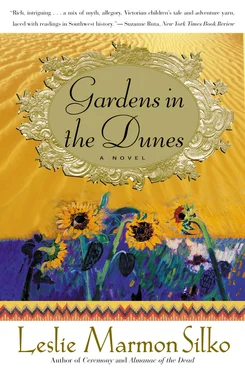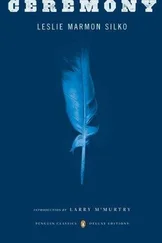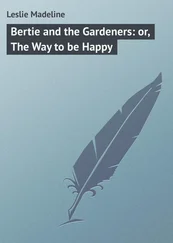Her affection for Edward stirred at that instant, and she could only smile at his neglect to leave her a way to reach him. The hundreds of tiny specimen drawers in the huge oak cabinets stirred her curiosity. She pulled out a drawer: inside was a small manila envelope carefully secured with red string. She unwound the string from the circular clasp and gently squeezed the sides of the envelope to look inside. All she saw was a single shriveled stalk with fragments of dry plant material, remains of leaves, perhaps. She sniffed the envelope but detected only a faint odor. Edward’s special interest was in aromatic grasses and plants, which always were highly prized by horticulturists and gardeners. Edward traveled to places so remote and collected plants so rare, so subtle, few white men ever saw them before. He added these rare treasures to his growing collection of roots, stalks, leaves, and, most important, when possible, seeds. His ambition was to discover a new plant species that would bear his name, and he spent twenty years of his life in this pursuit before their marriage.
♦ ♦ ♦
Hattie did not attend any parties or formal gatherings after she left graduate school, though gradually she accepted invitations to family picnics and outings to the beach — always with a group of her younger cousins, who needed a chaperone. The only reason she agreed to attend a formal event like the Masque of the Blue Garden was because their neighbor Mrs. Colin James served with Hattie’s mother on the bishop’s fund-raising committee, and Hattie was curious to see the garden so well known for its drama and the spectacle of its mistress.
Hattie’s mother wanted the party to mark the end of the seclusion Hattie assumed. Eyebrows were raised when she enrolled in graduate studies in early church history; all the other young women her age were engaged or married. After the scandal over her thesis topic, Mrs. Abbott was relieved to let the dust settle awhile, but she still hoped to find Hattie a husband. In a year or two the incident would be forgotten. By chance, Susan James’s distinguished brother, Edward Palmer, arrived from an expedition abroad two days before the blue garden event.
The Masque of the Blue Garden was considered the premier event of the summer season, and Hattie thought it promised to be eccentric enough to be interesting. And so it was. Just as the full moon rose over Oyster Bay, out stepped Susan Palmer James from the arch of blue rhododendrons, dressed all in sapphire blue — blue feathers and blue satin. She strode grandly from the far end of the blue garden along the white marble terrace next to the pool filled with fragrant blue water lilies.
Moments after her triumphant entrance, their hostess introduced Mrs. Abbott and Hattie to Edward Palmer, distinguished botanist and brother. His face and hands were tanned from his fieldwork just completed in Mexico. Hattie found him quite interesting, and while the others danced, Hattie and Edward talked about Italy. She went to England with her parents when she was a child, but she wanted to see Rome. Edward laughed when Hattie recounted her mother’s fears that high church officials might excommunicate her for heresy. But Hattie’s father, God bless him, suggested the church’s cardinals had more pressing concerns than a Gnostic heretic. Her trip to Italy was scheduled for the following spring.
Mrs. Abbott did not trust Hattie or Hattie’s father; after all, they conspired to enroll Hattie in graduate school at Harvard without her knowledge. What respectable man wanted a wife who sat in a musty library all day to pore over heretical texts? Mrs. Abbott’s face assumed a stricken expression at any mention of Hattie’s thesis, but her expression relaxed whenever she reminded Hattie of the size of her dowry. Mrs. Abbott talked about money almost incessantly — who had money, how they got the money, and who lost their money. Despite her family’s impeccable lineage, their wealth was in decline when Mrs. Abbott was a child. She felt quite fortunate to find a husband who did not care about such things.
Despite Mr. Abbott’s disapproval of the practice, Hattie had a sizeable dowry that made Mrs. Abbott smile every time she thought of it; she liked to remind Hattie of its size.
“In that case, I hereby renounce my dowry!” Hattie used to reply. “I’d rather spend the money on travel.”
“Oh nonsense, Hattie!”
“I’d rather not be married anyway — now that I’m a heretic!” she laughed, but after she got acquainted with Edward, her opinion of marriage began to change. Edward was a remarkable man. He traveled a great deal to the most distant and fascinating destinations, and he had a wonderful gift for recounting his adventures, in which he portrayed himself humorously, as the innocent tourist hell-bent on disaster. The tourist identity was the disguise he adopted to confuse the customs officers. Some foreign governments were quite unpleasant about the export of valuable root stock and seeds.
Edward was quite irreverent about customs authorities in general, which Hattie found appealing. I am a heretic, she thought, but Mr. Palmer doesn’t seem to mind. Hattie asked her father what he thought of Mr. Palmer.
“He’s too old and he travels too much,” her father said, “but nothing I say will stop you if your mind is made up.”
She linked her arm through her father’s. “My mind isn’t made up,” she said as they walked to the dining room together. “Mother’s mind is made up.” Mr. Palmer wasn’t as young as the others, and like any longtime bachelor he might be set in his ways; still, he didn’t seem adverse to children. Indeed, in the months that followed the garden party, Hattie saw Edward again at a picnic on the seashore and at a birthday party on the lawn for Edward’s young nieces. On both occasions Edward brought along his view camera and made photographs of the children playing, and later posed everyone for a group photograph that included him too — he tripped the shutter with a long black string as he posed with the group. Edward really could be quite appealing. Hattie had not wanted marriage or children, but Edward changed all that. Children — the child! Suddenly she remembered the Indian child in the lilac bushes. What if the child did not find her way back to the school?
Hattie rushed downstairs and out to the south garden lawn hedged with lilacs. Next to the plate, the cup was lying on its side in the grass. Hattie didn’t mind if her skirt got dirty; she crawled and searched carefully under and among the dark green leaves of the lilacs. She found a few late blossoms hidden in the lower branches; their perfume seemed stronger than the earlier blossoms; but she could not locate the child. Hattie blamed the arrival of the telegram for her thoughtlessness; she should not have taken her eyes off the child!
Hattie rushed up the steps to the fountain and pool for a better view. Beyond the lilacs, orchards of lemons and oranges stretched to the horizon. She couldn’t quite see the redbrick buildings of the Indian school, but once from the third-floor balcony, Edward had pointed out a cluster of two-story buildings in the distance. The child almost certainly returned to the school; there was nothing but desert beyond the citrus groves.
She checked under the lilacs a last time just to be sure. A late afternoon breeze wafted the perfume of the yellow climbing roses on the kitchen garden wall. She still had to bathe and change clothes before she went to meet Edward’s train, but the excitement of the telegram on top of the discovery of the Indian child left Hattie exhausted. On a marble bench that overlooked the gardens and orchards below, she felt herself almost shiver with anticipation, so she closed her eyes and took deep breaths as her doctor instructed. The fresh outdoor air relaxed her. The doctor’s orders were to take every opportunity to relax and to avoid fatigue lest she fall ill again. She exhaled slowly, as the doctor instructed. She still had not unpacked her books or papers because the doctor advised against the resumption of her studies until they were certain she was fully recovered. Men were equipped for the rough-and-tumble of the academic world in ways women, unfortunately, were not, the doctor said. Hattie’s mother looked sharply at Hattie as the doctor spoke.
Читать дальше












